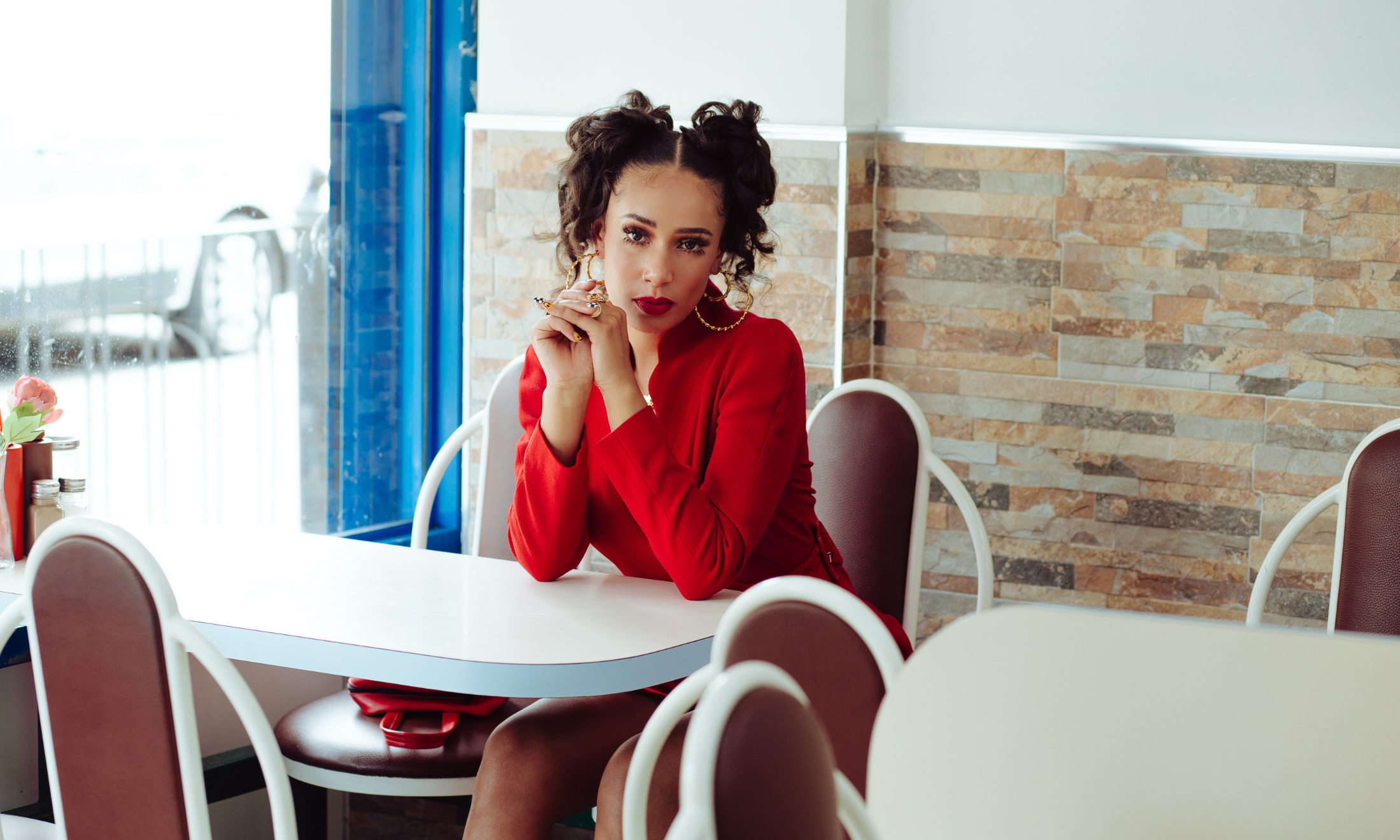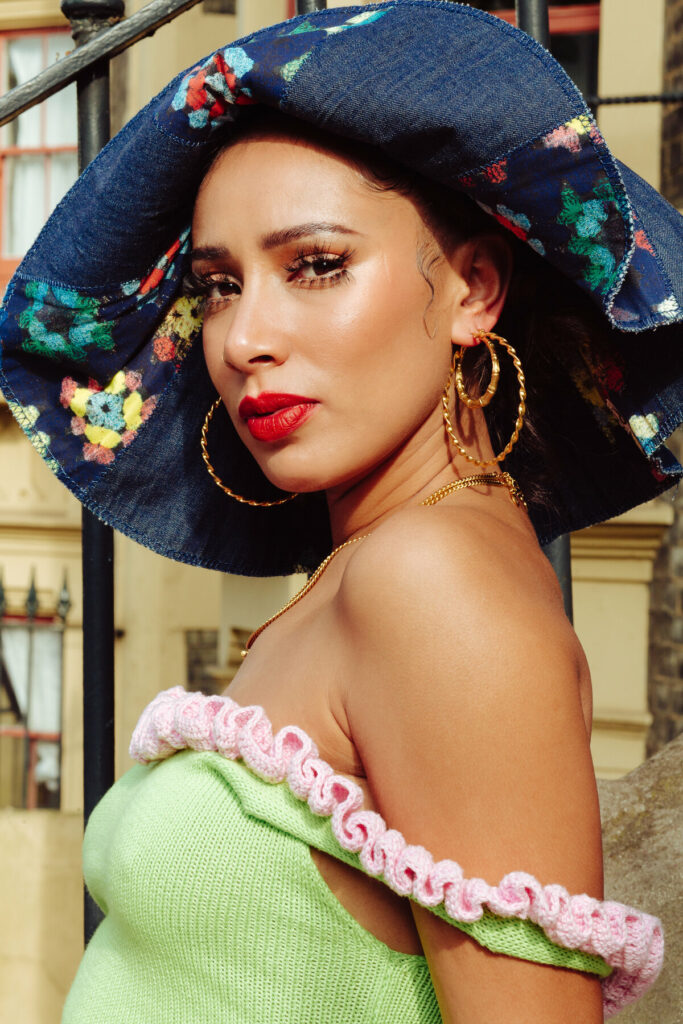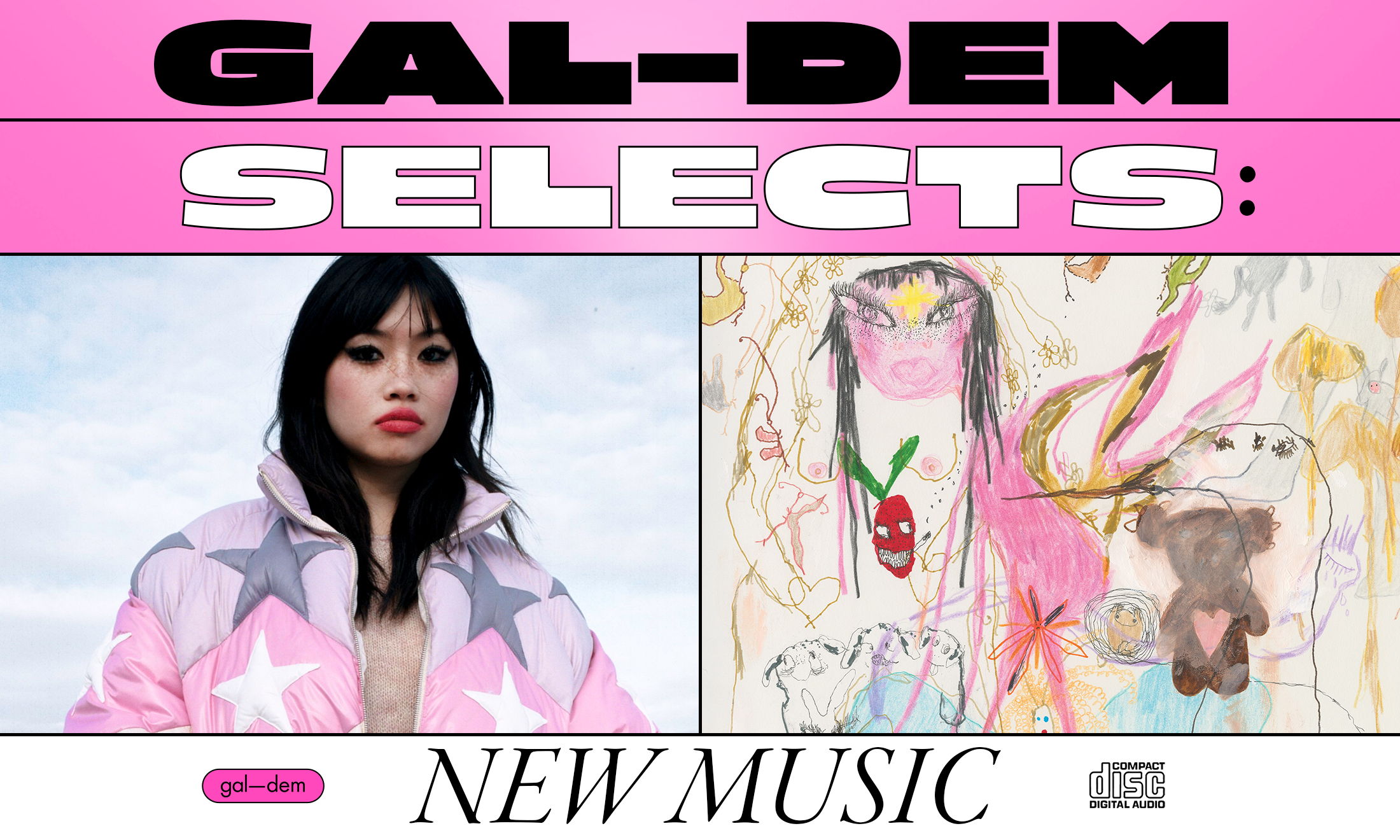
Courtesy of Eliza Rose
B.O.T.A’s Eliza Rose on breaking records and bringing the underground with her
With a UK No. 1 and a MOBO nomination, the East London producer stresses that success isn't at odds with the underground.
Riann Phillip
30 Nov 2022
Eliza Rose’s ‘B.O.T.A. (Baddest Of Them All)’ dominated clubs, festivals and TikToks this summer with its bouncy bassline and colourful chords, crowning Rose the first female DJ to top the UK’s singles chart since Sonique’s 2002 hit, ‘It Feels So Good’. But unlike the dozens of fresh-faced Gen Z artists dominating today’s charts, Rose’s rise to fame hasn’t come from bedroom productions; she’s spent over a decade working on her music and has long been known in East London club scenes.
With a MOBO nomination under her belt and a major label record deal, the hard work is paying off for the 31-year-old Hackney producer. “It’s nice to know that all the work I put in from years ago finally paid off,” Rose tells gal-dem of her chart-topping achievement. “It’s surreal and unexpected.”
Rose’s beats are characteristically melodic; combining her love of Black soul artists including Billie Holiday and Ella Fitzgerald with the 90s/00s UK garage sounds of her childhood. Since the success of ‘B.O.T.A. (Baddest Of Them All)’, Rose has been vocal about recognising the Black origins of dance music and is “honoured” to be part of the MOBOs brand new ‘Best Electronic/Dance Act’ category. “It’s a moment to remember,” she says.
We sat down with her ahead of the MOBOs, where Rose will also be performing, and spoke about heritage, Black women in dance, and why success won’t change her love for the underground.
gal-dem: The success of ‘B.O.T.A (Baddest Of Them All)’ has been wild. How has it felt for you?
It’s a springboard for me as I’ve been pursuing a career in music for a very long time. It’s been a “thank God, I didn’t give up moment”, because there were plenty of times I was thinking “this is long”. But you know, I persevered and carried on doing it and thought this is what I love, I’m going to continue, and then it paid off.
“I persevered and thought this is what I love, I’m going to continue… and it paid off”
I heard that ‘B.O.T.A’ was inspired by a Pam Grier film. Is that true?
I look for inspiration literally wherever I am, I’m quite image-led. I saw the poster for Pam’s film Coffy and it says: “She’s the godmother of them all. The baddest one-chick hit squad in all of the town.” I really just thought, “oooh there’s something there”.
I [already] had those bubblegum pop lyrics [in the song’s chorus], but I knew I needed a little grit to balance it out. It’s quite an empowering song, but it’s also got this cutesy element and that’s why it resonates with a lot of women. And I also feel the essence of Pam Grier in that. She really is the baddest of them all.
Let’s talk about the MOBO Awards! You’re performing and you’re nominated in the new Best Electronic/Dance Act category alongside artists such as FKA Twigs, Nia Archives and SHERELLE. How does it feel?
It feels so good. The category has been a long time coming; it’s kind of shocking that it’s taken this long. A lot of people have been campaigning and working on this for years behind the scenes, especially a lot of Black women DJs, which I think shows the passion for the genre.
“The [MOBOs Best Electronic/Dance Act] category has been a long time coming. People have been campaigning for years”
The nominations are really good and it’s a good representation of the underground dance music scene. It feels kind of iconic to be nominated on the 25th anniversary, it’s a real moment in history.
The new category has been hailed as an important recognition for BIPOC talent in dance music. How have other things changed in the industry since you started making music, especially for BIPOC women?
Women of colour have more voice now, and can speak out when something is not right. I’m close with a lot of other women of colour DJs and there’s a support system and community that I didn’t have when I first started DJing eight years ago.
This year, you’ve gone from slaying the underground to mainstream success; what’s your day-to-day been like since the success of ‘B.O.T.A.’?
I can’t quite wrap my head around how successful [B.O.T.A] is. I’m trying not to think about it too much otherwise it would be too overwhelming and I’d feel the pressure for a follow up. I just want to focus on doing what I was doing before: making good underground dance music and trying to stay grounded.
Life’s definitely busier, but I get to do what I love and write music and actually have that as a career that can pay my rent, which is fantastic.
Tell me about your musical growth. Does your heritage inform your music?
When I first started working in a record shop, I was really into Amy Winehouse. I wanted to find out what inspired her – I learned about Ella Fitzgerald and Billie Holiday. I was 15 and I didn’t have a massive musical knowledge, I just saw these amazing, beautiful Black women on the covers of these record sleeves and connected to the music.
These Black soul figures became a major influence to my singing style. I discovered reggae around the same time, and that was a new connection to my Jamaican roots outside of family because I hadn’t ever been to Jamaica before. With electronic music, I didn’t even realise garage was dance music at 15, I thought it was sped up R&B! When I found out its history and that house and techno also had Black roots, I started really getting into it.
I’ve tried to combine those genres into my own style. With house and techno music, I always thought that was white people music, so it was cool to learn the history, especially in the record shop where I had all of this music at my disposal. I’m a bit of a nerd as well so I love reading about the people and the history.
What is it like to run and release on your own independent label, Rosebud Recordings?
My label is a really small dubplate label that I run by myself and we only press 50 to 100 vinyl records. So I released ‘[B.O.T.A]’ on that first, which I’m really pleased about, because it was really fun to see Rosebud Recordings next to Warner, Polydor, EMI and Sony. Ultimately, I signed to Warner but ‘[B.O.T.A]’ did really well even before that and was [already] in the charts before going viral on TikTok.
Do you have any advice for up-and-coming BIPOC producers and DJs?
Try to find different avenues to get where you want to be. When I knew I wanted to work in music, I thought, “what are the ways I’m going to get there?” I was DJing and singing, I started my label, I learnt how to produce… I worked at record labels and at a record shop. All these different little streams add to where you ultimately want to go and what you’re going to be.
There’s definitely a sense of gatekeeping. I initially thought, “how am I going to start a label?!” but it’s really easy. You can start a label and you can find some people that make songs. Basically, just have a go at anything that you think might be beneficial. And if it doesn’t work out it’s fine. Leave it, move on to the next.
“I’m treating [the success] as a springboard to continue to bring underground more into the mainstream.”
What’s next for Eliza Rose?
To make good underground dance music. I’m not trying to veer off too much from what I was already doing. Not to say [the success of B.O.T.A] was an anomaly – I want to do more. But I’m treating [the success] as a springboard to continue where I was already and bring underground more into the mainstream. I just wanna keep making the tunes that I enjoy playing.
Eliza Rose will be performing at the MOBO Awards on 30 November
The contribution of our members is crucial. Their support enables us to be proudly independent, challenge the whitewashed media landscape and most importantly, platform the work of marginalised communities. To continue this mission, we need to grow gal-dem to 6,000 members – and we can only do this with your support.
As a member you will enjoy exclusive access to our gal-dem Discord channel and Culture Club, live chats with our editors, skill shares, discounts, events, newsletters and more! Support our community and become a member today from as little as £4.99 a month.










